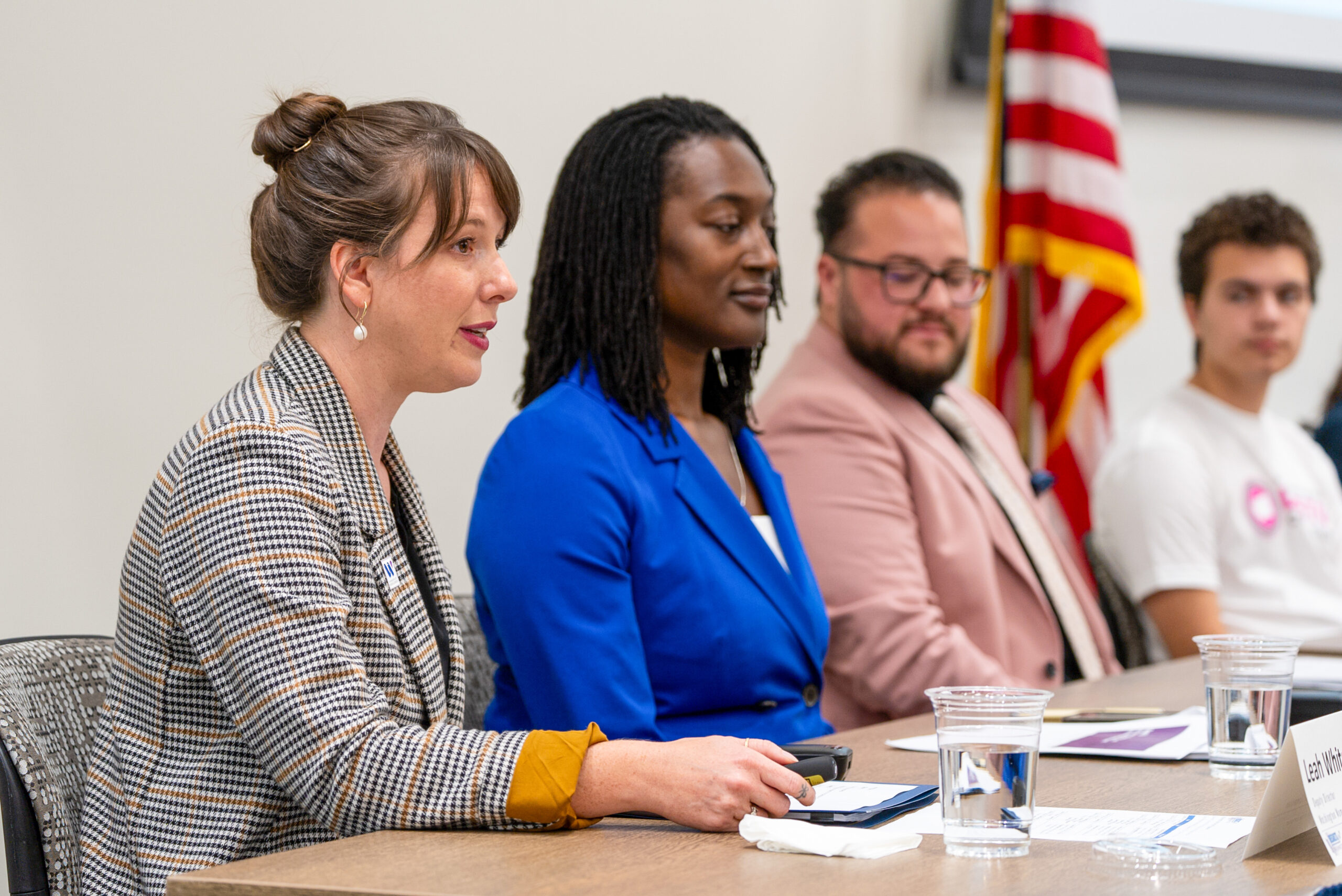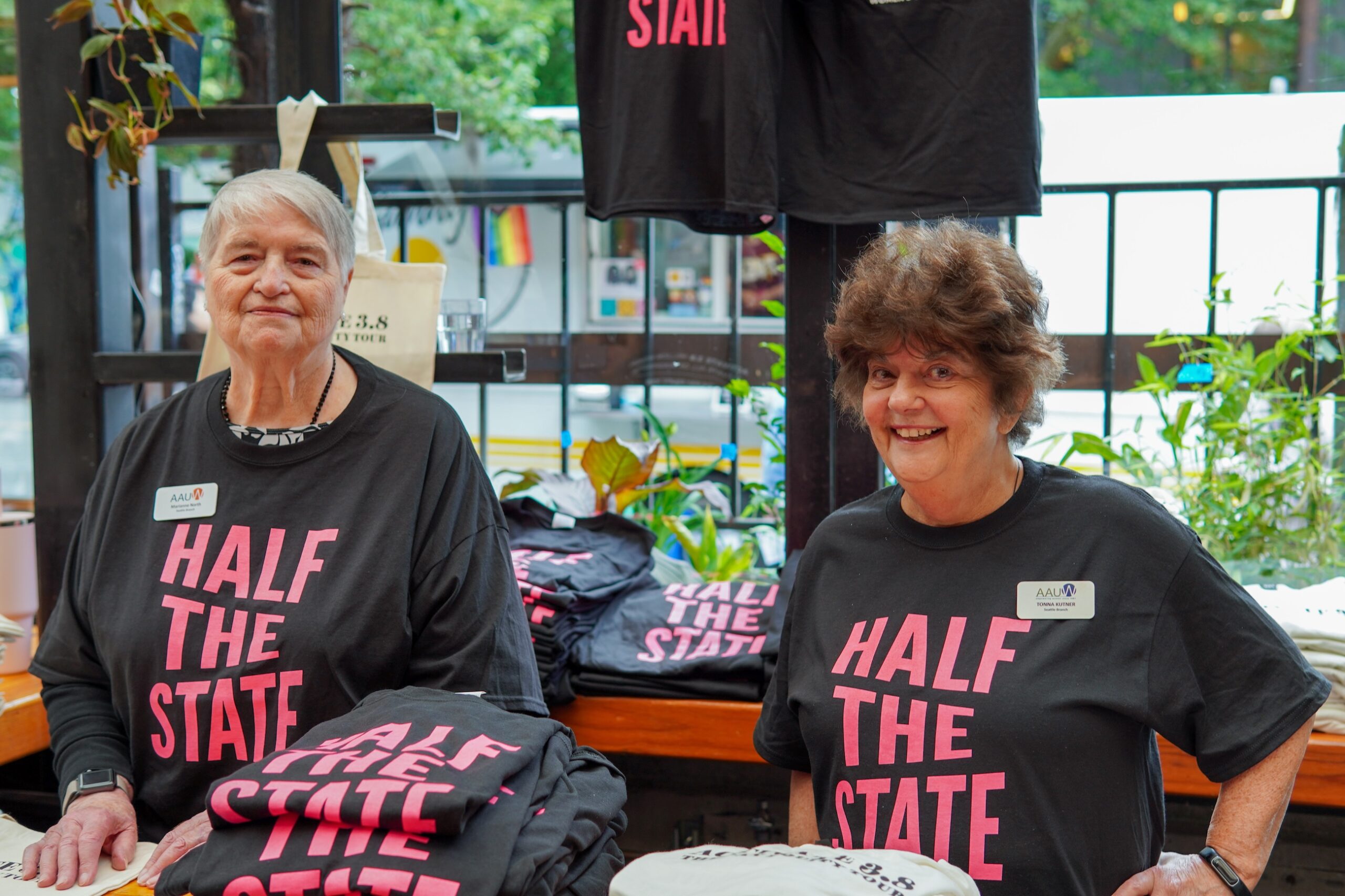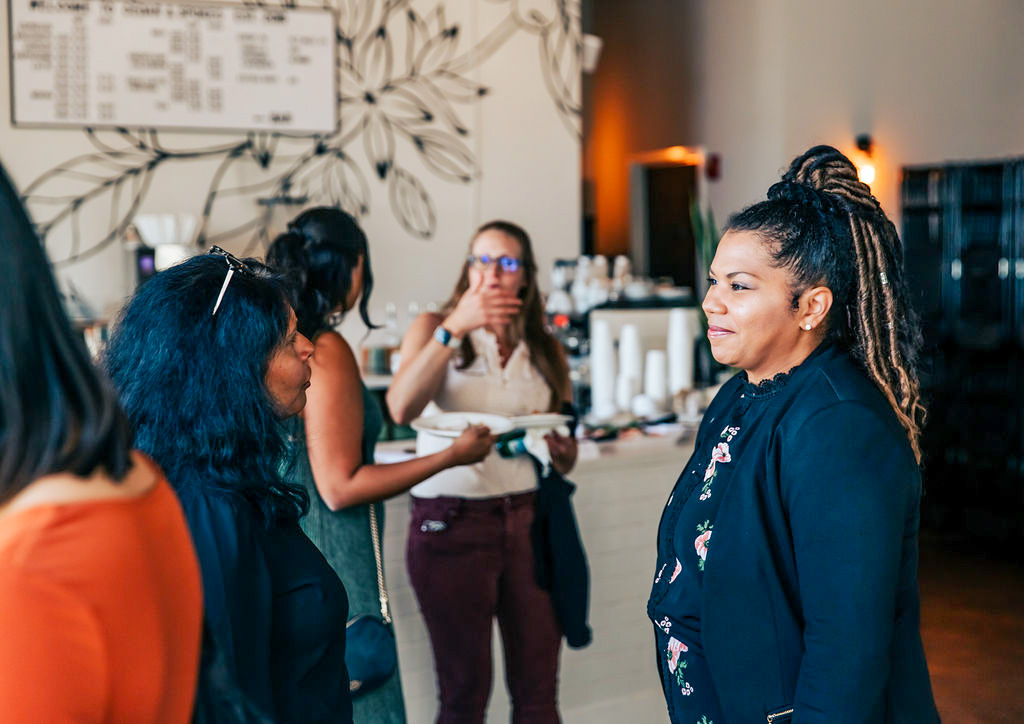How Gen Z Women are Navigating COVID-19 and an Uncertain Future
April 1, 2021
A sincere thank you to all who joined us for our Gen Z & COVID-19 panel on March 31st.
We want to extend our thanks to our panelists Destiny Henderson-Lewis from Paul Quinn College, Maren Hendrickson from the University of Washington, and Tilda Lee from Seattle Central College for sharing their authentic experiences with us as they navigated the past year amidst COVID-19, and how it impacted their mental health, friendships and relationships, and their home and work lives.
Generation Z is the cohort born between 1996 and the mid-2010s, which make up approximately 67 million individuals across the U.S., 35% of which are older than 18. Since the onset of the pandemic, the country’s social, political, and economic landscape and outlook have changed dramatically, with studies showing that those who were apart of the youngest working generation were more likely to be negatively impacted by the pandemic than older generations.
And while no group has been immune to the heightened stress in response to COVID-19, studies have shown Gen Z reporting higher levels of stress and mental health concerns than older generations. According to a survey conducted by Oracle and Workplace Intelligence, 90% of Gen Z respondents said that the pandemic negatively impacted their mental health, and about 70% of Gen Z-ers have reported mental health as topping their list of concerns.
Gen Z now faces an uncertain future. However, a report by Girls With Impact found Gen Z to be more purpose-driven and conscious of imminent social and environmental issues than ever. They report that Gen Z women in particular are turning towards entrepreneurship in greater numbers as the means to innovate and maximize their social impact.
According to the American Psychological Association (APA), some strategies for supporting younger generations through this uncertain period include:
- Facilitating and expanding access to mental health services during and after the pandemic.
- Fostering safe opportunities to connect with family, culture and community.
- Encouraging young people to reinvent norms and traditions by creating new ways to behave and celebrate in meaningful ways.
- Providing innovative educational, work, training and employment opportunities prioritizing younger generations of adults.
- Acknowledging the sacrifices that younger adults have been forced to make during the pandemic, including social and educational milestones that are critical to their development.
As we witnessed on our panel, Gen Z women are rising as our next generation of leaders. As a society, it is critical that we provide support for our youngest generation of women.
As Emma Adam, PhD, the Edwina S. Tarry Professor of Education and Social Policy, says, “We must work to provide social, emotional and mental health supports to this generation, while providing much-needed financial assistance and educational and work opportunities for youth. Both comfort now and hope for the future are essential for the long-term well-being of this generation.”
Rewatch the Panel
For those who missed the event, watch the recording here:
To Learn More
- If you are facing a life-threatening emergency, please call 911.
- For immediate help with a mental health crisis or thoughts of suicide: contact the National Suicide Prevention Lifeline at 1-800-273-8255 (TRS: 1-800-799-4889).
- For non-life-threatening mental health crises in Washington, please call the mental health crisis line for your county.
- The mental health crisis lines listed below are available for all people in Washington, regardless of your income or whether you have insurance or not.
- Search online therapist directories for counselors or therapists near you at Psychology Today or Good Therapy.
- To search for affordable counseling, visit: Open Path Collective or LowCostHelp.com.
- Check out Rise Psychology’s page for a comprehensive list of mental health resources.
- For a list of mental health resources specifically centering BIPOC folks, visit NAMI Seattle’s list here.
- For financial assistance for Black individuals seeking mental health support, visit WA Therapy Fund.
- Consejo Counseling and Referral for the Latino Community offers comprehensive behavioral health services to the Latino community of Washington, including outpatient mental health for children, youth, and adults.
- Asian Counseling and Referral Services (ACRS) provides counseling and wellness services. for Asian American and Pacific Islander (AAPI) community youth and adults.
- Read more perspectives from Gen Z-ers around the world as they share their experiences navigating COVID-19.



